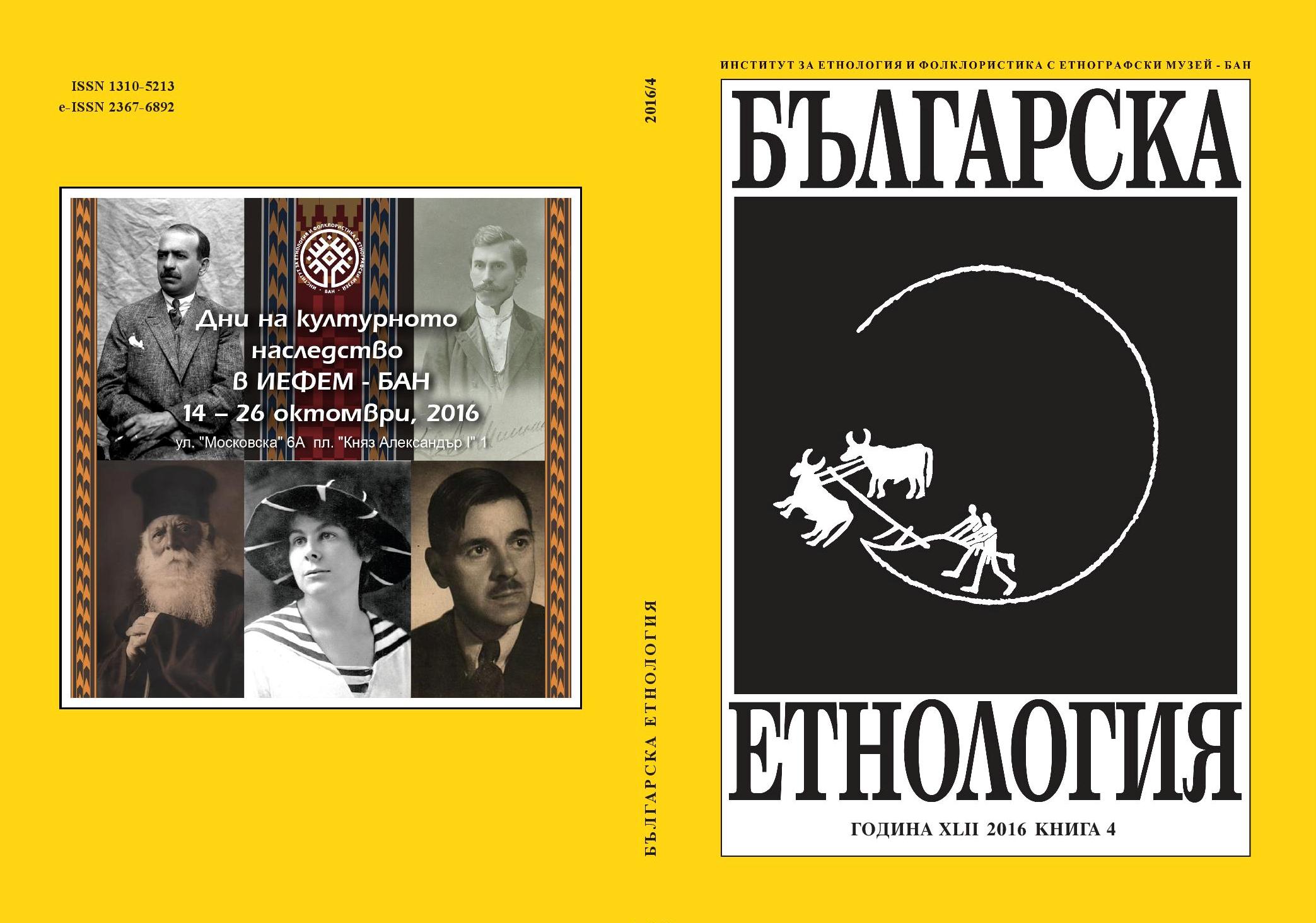
We kindly inform you that, as long as the subject affiliation of our 300.000+ articles is in progress, you might get unsufficient or no results on your third level or second level search. In this case, please broaden your search criteria.




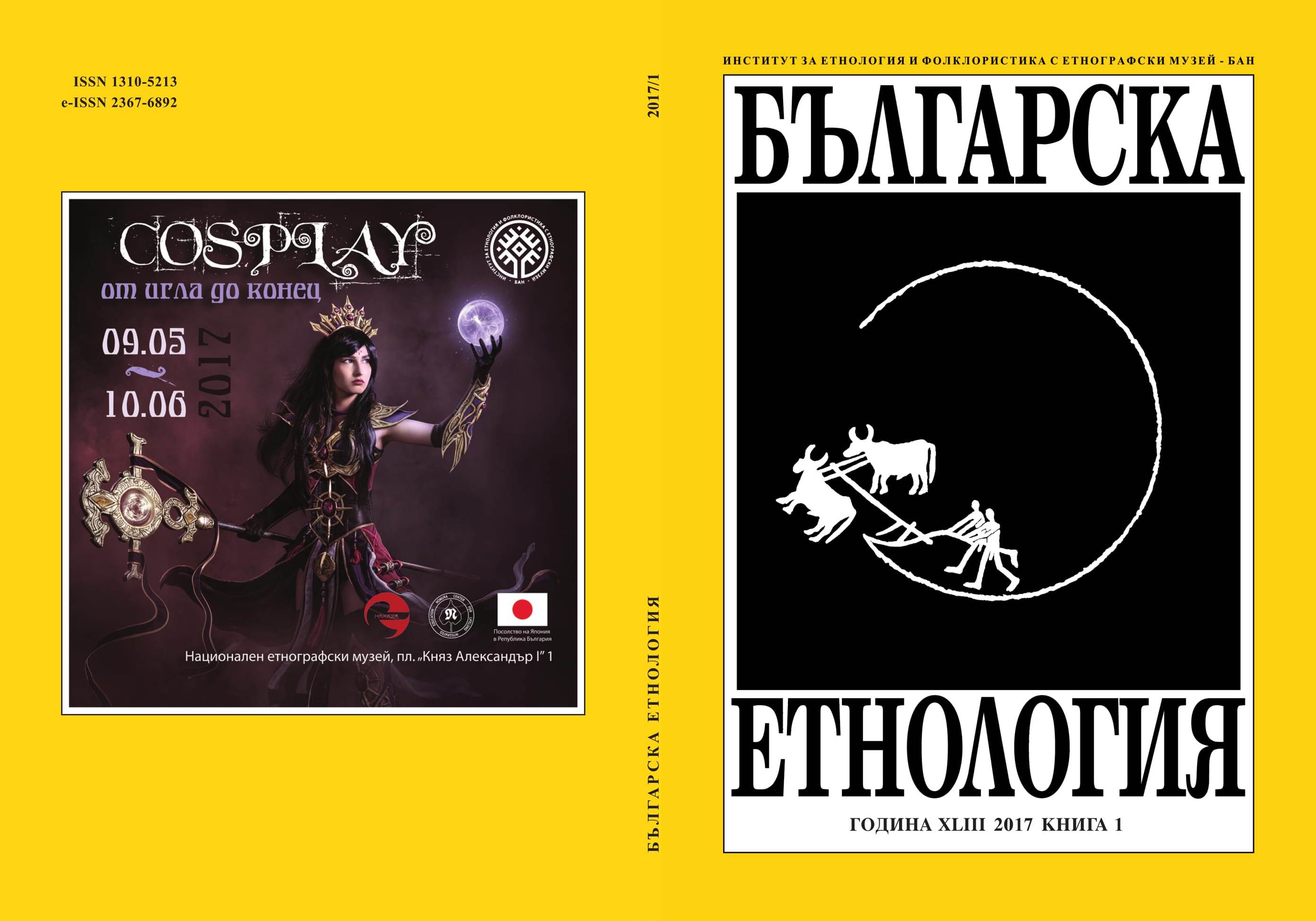

The article is part of a series of observations related to the problem of the identity construction of the Easteauropean emigrants/immigrants “in the West” (Europe andUSA) before and after the “democratic changes”. Here, the author examines the first case (the second one is published in the second volume of the thematic issue “The Road”) which is based on materials from Estonia. The article shows the specifics of the Estonian labour mobility to Scandinavia in the context of the identification “main stays” developed by the Estonian society and related to the so-called popular religion and the neo-paganism which form a “working” national narrative.The article is based on the fieldwork of the author, published sources and Internet materials.
More...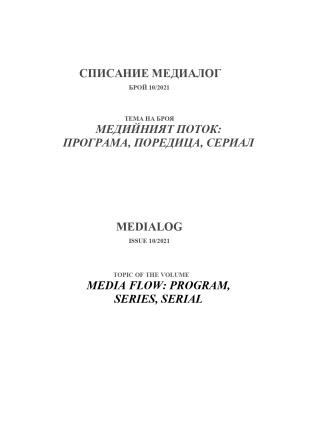
In the proposed text is sought to answer the question of whether and when we can talk about serialization in the international information flow. An attempt has been made for some systematization of the possible types of serialization, among which the anniversaries stand out. There are two major branches – the traditional serialization and the one generated by the possibilities of new technologies. The example with the ‘Tiananmen Papers’ is considered in more detail. It is also worth noting the borrowing serialization, shown in two examples of connecting processes in the present with such from the recent or very distant past.
More...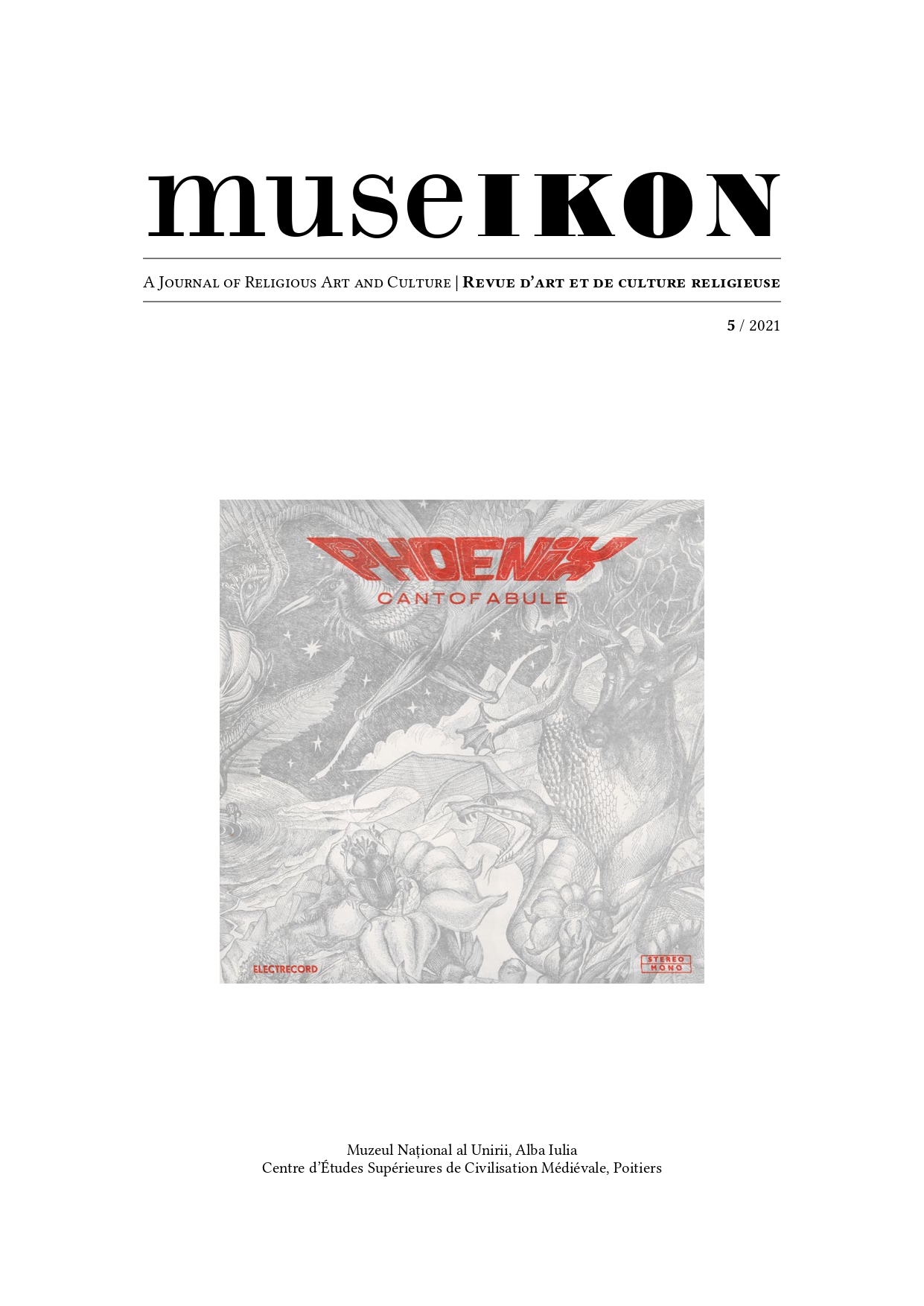
Exhibitions. Conferences. Projects. Databases. Latest publications.
More...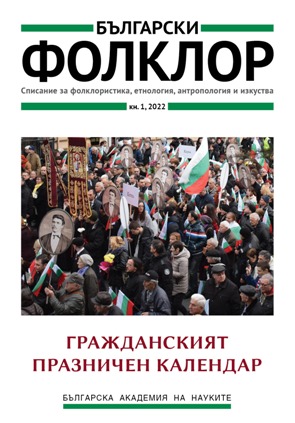
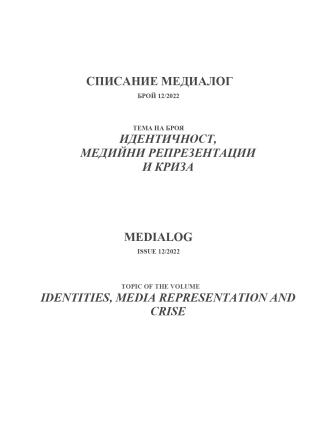
The text contains a review made within the Public Seminar of the Department of „Radio and Television“, held on November 1, 2022, where Raina Konstantinova, Chair of the Public Council of the Bulgarian National Radio, and Prof. Snezhana Popova presented the new book of Assoc. Prof. D.S. Vyara Angelova „The Socialist Bulgarian Radio (1944-1989)“ (University Press „St. Kliment Ohridski“, 2022). We publish both speeches given at the premiere of the book.
More...
The text offers a review of Prof. Miglena Nikolchina's monumental study "God with Machine: Subtracting the Human", dedicated to fundamental theoretical conceptualizations around anthropological issues. The review dwells in particular on the central conceptual paradox outlined in Prof. Nikolchina's book, namely the double determination of man as "a being who wants to be human" and “being who does not want to be human”
More...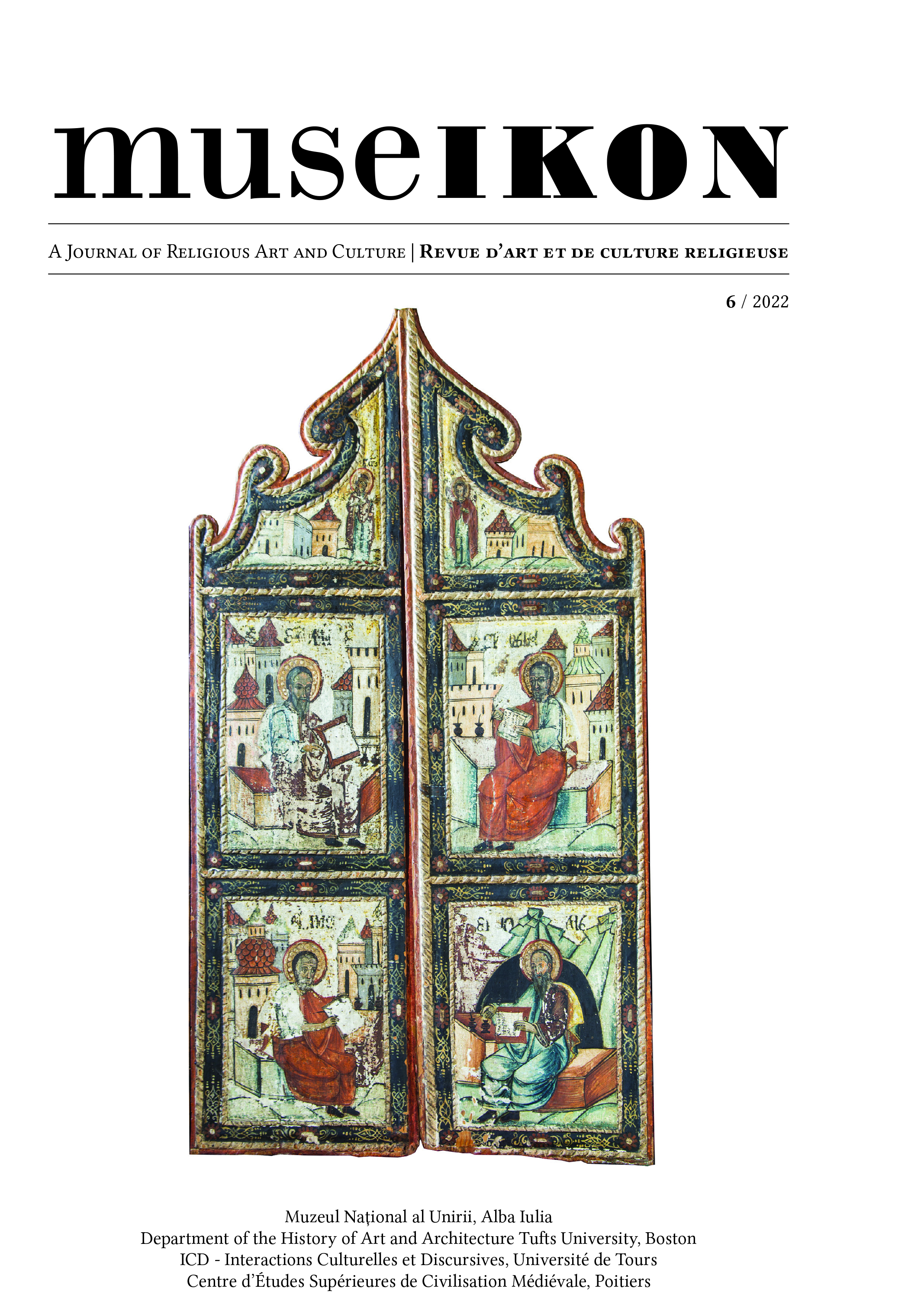
Après avoir reconfirmé la datation de Camille Enlart (vers 1421 ou 1421-1424) et identifié le comman-ditaire (l’évêque de Limassol Barthélemy Gui) dans une inscription fragmentaire, la présente étude explore: d’une part, les modèles des inscriptions en langue vernaculaire française de Pyrga (Chypre); d’autre part, la lo-gique du programme iconographique et le contexte culturel que sous-tend cette dernière. Dans la première par-tie, l’analyse des inscriptions de la chapelle prouve que le concepteur du décor peint a suivi un modèle manuscrit, sans doute un psautier avec un grand cycle d’enluminures. L’étude évoque trois termes de comparaison célè-bres: le Psautier de la reine Ingeburge (Chantilly, Bibliothèque du Musée Condé, 9 – tournant du xiiie siècle), le psautier de l’évêque Henri de Blois (Londres, British Library, Cotton Nero C iv – vers 1160) et le livre d’images de Marie de Rethel (Paris, Bibliothèque nationale de France, n. acq. fr. 16251 – vers 1285). Dans la source manuscrite reconstituée, les inscriptions en ancien français étaient probablement transcrites en tant que tituli, d’après une typologie tripartite: noms de fêtes religieuses, groupes nominaux ayant une fonction analogue et légendes sous forme d’énoncés introduits par l’adverbe coument. La langue des inscriptions de Pyrga, un français d’Outremer, présente les traits particuliers des scriptae chypriotes de la fin du Moyen Âge. De plus, on constate que la déco-ration de la chapelle inscrit le monument de Pyrga dans la catégorie des chapelles royales de l’Europe occidentale (xive et xve siècles). Le transfert du codex à la paroi concerne non seulement les images, mais également les textes qui accompagnent ces dernières. L’auteur s’intéresse ensuite à la disposition symétrique de la décoration dans les deux travées de la chapelle, ainsi qu’à la manière dont cette disposition accentue l’Uniatisme catholique-orthodoxe. La logique dos-à-dos de la décoration émule celle des icônes à double face – termes de comparaison directs pour la chapelle – notamment leur choix d’apparier deux scènes : la Crucifixion / la Mère de Dieu. Le con-cepteur du décor peint souhaitait évoquer l’osmose de deux églises: une église latine, orientée vers l’Est; la sug-gestion d’une église byzantine, orientée vers l’Ouest. Cela explique le choix particulier de la décoration des voûtes (christologique pour la travée Est et mariale pour la travée Ouest), la double représentation de l’An-nonciation (pour marquer l’orientation des deux églises) et le choix d’une composition de type pala d’altare pour la paroi Est, tandis que la paroi Ouest imite la décoration des templons byzantins. L’osmose des deux églises est indiquée de manière encore plus claire par le choix de représenter les martyriums des saints Étienne (signifiant l’Orient) et Laurent (signifiant l’Occident) au-dessus des entrées latérales. Ce serait une allusion à l’osmose des corps de ces saints dans la Coniunctio corporum sanctorum Stephani et Laurentii (bhl 4784b). Après une réévaluation du texte fragmentaire (aujourd’hui perdu) de l’inscription dédicatoire, il est évident que la dédicace proprement dite concernait l’Assomption de la Vierge. Qui plus est, l’osmose Est-Ouest était de nou-veau indiquée par la représentation dans un même cadre de la Dormition de la Mère de Dieu (sujet à connotation byzantine) et du Couronnement de la Vierge (thème occidental par excellence). Les textes littéraires des xive et xve siècles confirment la fixation chypriote de l’appariement de la Mère de Dieu avec la Passion du Christ, de même que plusieurs autres choix de la décoration de Pyrga. La signification de la décoration devait être multiple, en rapport avec la triple utilité du bâtiment: chapelle funéraire (pour Barthélemy Gui), chapelle royale (pour le couple Janus de Lusignan-Charlotte de Bourbon) et point d’entrée au monastère de Stavrovouni, qui hébergeait des reliques de la Sainte Croix.
More...
Dans les églises de rite byzantin, les ‘portes royales’ de l’iconostase se distinguent par leur richesse, leur étrangeté et leurs mystérieux ornements. Malgré le rôle décoratif essentiel qu’ils jouent, la finalité de ces traits caractéristiques demeure souvent obscure. Le manque d’explication cohérente devient ainsi l’un des défis scientifiques les plus stimulants à relever, afin d’en clarifier la signification. Étant donné que les recherches en ce sens sont encore absentes du panorama critique de l’histoire de l’art post-byzantin, mettre l’accent, dans une analyse du symbolisme des ‘portes royales’, sur une province lointaine telle que le Maramureș pourrait surprendre. La présente étude se propose toutefois d’interpréter la décoration des ‘portes royales’ au sein du cadre strict de l’espace rituel et culturel byzantin dans le territoire des Carpates du Nord à l’époque prémoderne, en s’appuyant, pour ce faire, sur des écrits religieux contemporains des objets étudiés. Puisque ces écrits, à travers les traductions en langue vernaculaire, ont influencé la culture populaire de la région, la décoration des ‘portes royales’ doit être interprétée en clé mariale. Aussi, tous les traits caractéristiques, les détails et les significations de ces portes illustrent la porte du ciel, attribut caractéristique de la Mère de Dieu dès l’incarnation du Christ. Il semblerait donc que le thème central en soit l’Annonciation. Ainsi, l’étude se propose de montrer la manière dont ce thème a été amplifié et diversifié sous forme de cycle iconographique composé de quatre parties, que l’on peut observer à la fois en peinture et en sculpture. Les sculptures témoignent d’un emploi particulier du langage métaphorique, exprimé d’une manière allégorique et emblématique, à travers laquelle les ‘portes royales’ sont transformées en pièces centrales et complexes de l’iconostase. Plusieurs prophéties concernant la Venue du Sauveur grâce à une vierge ont été choisies et représentées dans la sculpture des ‘portes royales’ de la région des Carpates du Nord, qui devient le centre d’un développement iconographique particulier. Sans doute, les disputes religieuses ont-elles façonné la culture spirituelle des croyants orthodoxes des Carpates, à l’époque turbulente de la pré-modernité. À cet égard, la rhétorique du langage artistique visuel se pose en miroir des témoignages apportés par les documents, les inscriptions et les collections folkloriques des communautés de rite byzantin. Situé à un carrefour de civilisations, l’art sacré de Maramureș contribue à une meilleure compréhension de la signification et de l’évolution de ces ‘portes royales’ à l’époque post-byzantine; mais il nourrit également l’étude de l’histoire de l’art européen dans son ensemble.
More...
This paper represents a continuation of previous publications: “The Musical Instruments in the Early Vernacular Translations of the Psalms. Collective Research” (Museikon, 3, 2019, p. 67-140—hereafter abbreviated as Musical Instruments 2019); “The Musical Instruments in the Early Vernacular Translations of the Psalms (2): Collective Research” (Museikon, 4, 2020, p. 257-302—hereafter ab-breviated as Musical Instruments 2020); and “The Musical Instruments in the Early Vernacular Trans-lations of the Psalms (4): Collective Research” (Museikon, 5, 2019, p. 91-107—hereafter abbreviated as Musical Instruments 2021). The current paper represents the finalisation of this group of articles.
More...
Cet article se propose d’étudier, dans leur contexte, différents accessoires ecclésiastiques russes, tels que des épitaphes, des vêtements de prêtres et des objets eucharistiques, qui se trouvent dans les églises et dans les monastères de la préfecture de Réthymnon - district passé sous le contrôle russe entre 1897 et 1909 - et qui datent de l’époque de l’Autonomie Crétoise (1898-1913). A la lumière des relations entre la Russie et les institutions socio-politiques crétoises; en tenant compte du fait que la Russie n’entretenait pas, avec cette île, des liens commerciaux aussi développés qu’avec les autres secteurs de la Grèce, l’auteure s’intéresse aux mécanismes de transfert et d’acquisition d’objets liturgiques russes, ainsi qu’à la reconstitution d’une cartographie. Aussi, les découvertes sont-elles étudiées dans le contexte des stratégies politiques - clés du soi-disant « soft power » déployé par la Russie impériale pour asseoir son pouvoir dans la région - employées afin de préserver et soutenir l’orthodoxie contre la propagande catholique et protestante.
More...
L’article explore un aspect peu étudié de la réception de l’art religieux russe par les communautés orthodoxes balkaniques du xixe siècle: l’image de la Russie et de ses peuples, que les moines collectant les aumônes (zeteia) avaient relayée, à leur retour, dans leurs monastères d’origine et/ou aux communautés environnantes. L’objectif principal des voyages entrepris par ces moines était de convertir une partie considérable de dons et bénéfices collectés en une variété d’objets ecclésiastiques précieux et/ou revêtements d’icônes. La présente étude analyse trois récits différents de deux de ces voyages, effectués dans les années 1860 et au début des années 1890 par des moines athonites. Elle explore également deux approches dans cette collecte d’aumônes (traditionnelle vs entrepreneuriale) et la manière dont le regard porté par les voyageurs en question sur la société russe, ses institutions religieuses, ses moeurs et ses habitudes, a pu en être affecté.
More...
L’article présente une série d’icônes et d’objets liturgiques provenant du trésor du monastère Rakovica à Belgrade, en Serbie. Plusieurs exemples, datant de différentes périodes, témoignent de l’influence culturelle russe sur le milieu local serbe. Le monastère possède six icônes peintes dans le Palais des Armures du Kremlin à Moscou vers la fin du xviie siècle. Ces icônes, qui comptent parmi les témoins conservés les plus anciens, nous renseignent sur les relations serbo-russes au sein de la vie religieuse de Belgrade. D’innombrables guerres ont jalonné l’existence du monastère Rakovica, ce qui explique que le trésor soit aujourd’hui relativement modeste. Il comprend, par exemple, quelques icônes russes des xixe et xxe siècles, principalement des artefacts produits en série, sans valeur artistique significative. Toutefois, les revêtements en argent de trois de ces icônes nécessitent une analyse approfondie. Aussi, le trésor comprend-il plusieurs livres liturgiques imprimés à Moscou ou dans la Laure des Grottes de Kyïv, de même que deux objets liturgiques.
More...
The paper considers the specific problem of the land property outside Italy in the Roman provinces during the period of the late Roman Republic and the early Principate. The author studies how the Roman government faced the new problems that the conquest created and what Rome actually did when first met the Hellenistic concepts of the land property in the conquered territories and how they were applied or modified according to the traditional Roman law principles and regulations. It is emphasized that the need to organize the territory and to define the property of the people who lived on that territory or the rights which they had to the land for a very first time occurred in Sicily which the Romans organized as the first Roman provincia. The article examines the organization of Sicily according to Lex Hieronica, it considers the exemptions and immunities of some cities from the general legal regime of the province, and studies the collection of public revenues and the payments for the taxes for the exploitation of the land – vectigal et vectigalia publica. Key notions and terms like possessio, dominium, mancipatio, vectigal, vectigalia, tributum, stipendium are cleared and special attention is paid to the correct use of the Latin legal terminology. Some of the most important fragments from the Institutes of Gaius about the provincial property are examined and is made a carefully study of his language and the legal aspects of his consideration of the rights that the individuals had over the provincial lands. The research presents in details the organization of other provinces in the late Roman Republic and the early Principate and deals with the richest Roman province – Asia, which brings huge revenues to the Roman budget. Central part of the study is dedicated to the legal regime of the provincial land and the author considers the main opinions on this topic in the recent Roman legal doctrine and translates and analyzes the relevant classical Latin texts in the sources and provides an important bibliography on the problem, he tries also to define the Roman concept for „provincial property“ which for sure was not identical with the dominium ex iure Quiritium in Italy.
More...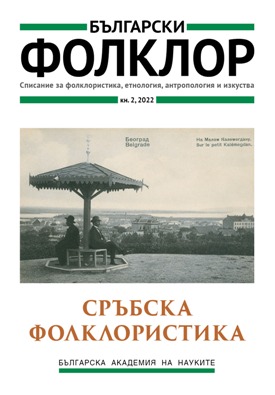
A large number of oral stories about Prince Miloš Obrenović (1780–1860) are preserved as an integral part of wider biographical, autobiographical, memoir, diary, historiographical, epistolary, travel and documentary sources. By identifying and separating anecdotes, historical legends, life stories and proverbs from the tissues of more elaborate narrative units, an extensive corpus is formed in which, through a series of narratives and variants, the narrated biography of Prince Miloš develops in the spheres of his military, political, diplomatic, social and private life. Given the fact that Prince Miloš appears as a very attractive and stimulating person for narrative shaping, the examples of his special administrative and judicial practice, which are characterized by elements of humorous, unusual, witty, but also arbitrary, unscrupulous and cruel treatment emerge as particularly interesting topics. He becomes a type to which are connected themes and motifs well known not only in the domestic tradition but also in the international narrative fund.
More...
Book Review: Disenchantment, Re-enchantment and Folklore Genres. Ed. by Nemanja Radulović, Smiljana Đorđević Belić. Belgrade: Institute for Literature and Arts, 2021. 286 pp. ISBN 978-86-7095-286-7
More...